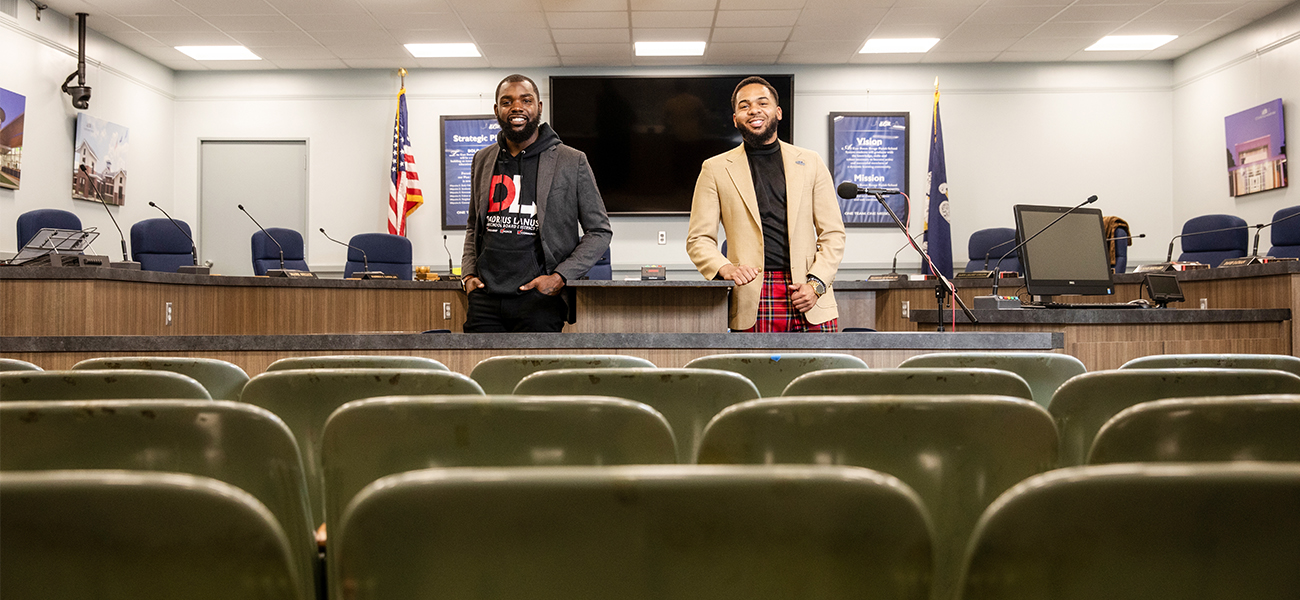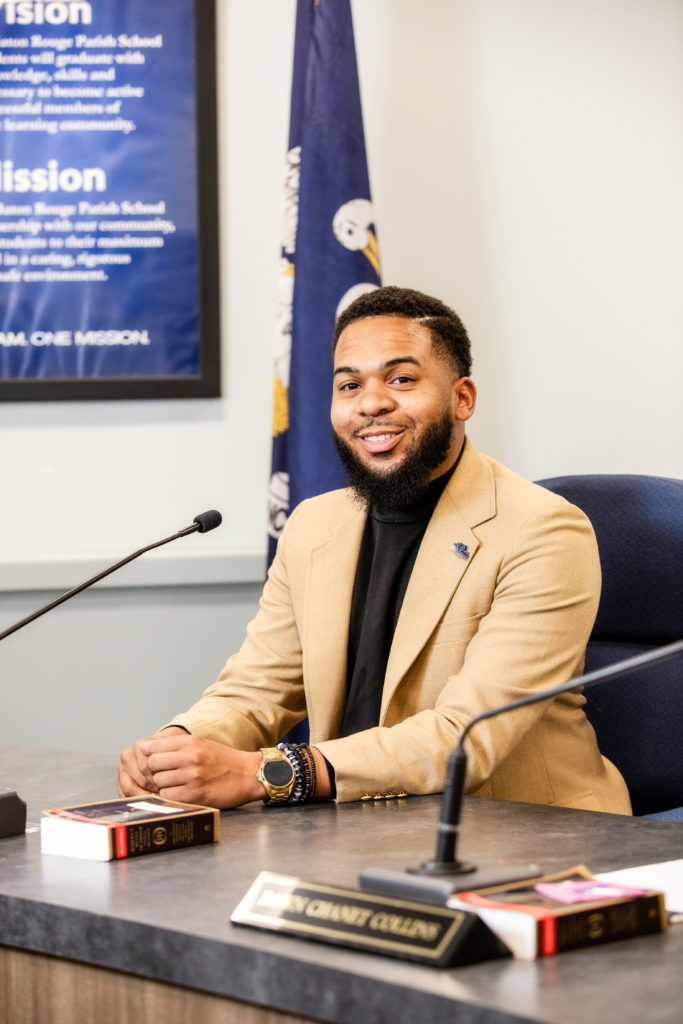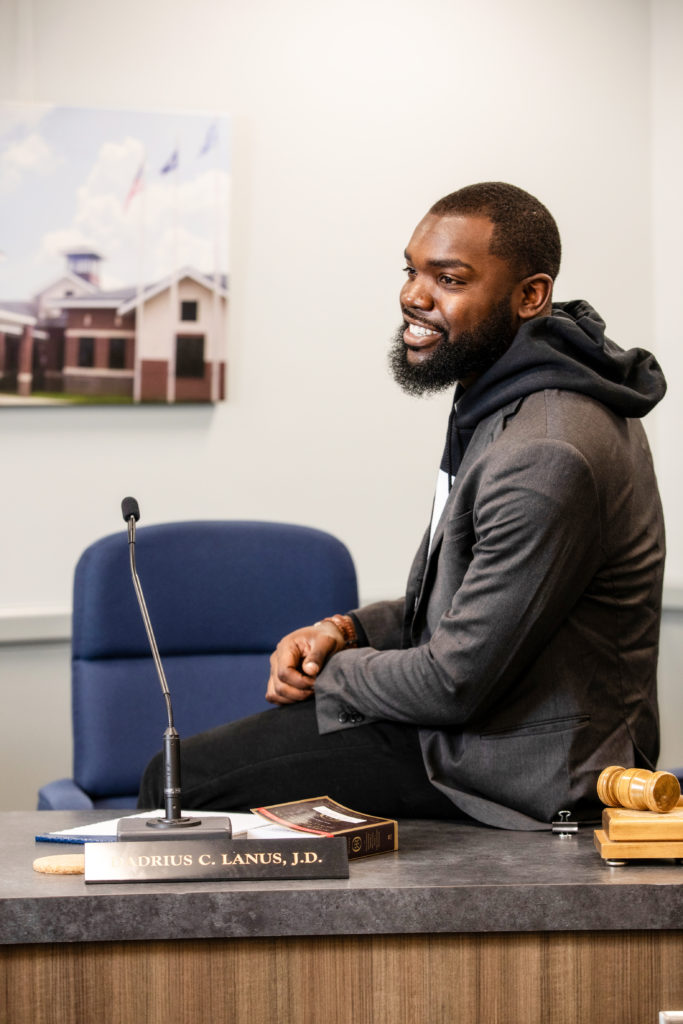
Two of the youngest school board members talk about their journeys and plans for the future
Late last year, Tramelle Howard made local history when he won a seat on the East Baton Rouge School Board. The 28-year-old educator and education specialist defeated an incumbent who held the seat for eight years, becoming the youngest African American man to hold the position. A little over a month later, Dadrius Lanus, a 30-year-old education consultant, won a runoff and followed in Howard’s footsteps.
The two men faced their fair share of backlash for their ages, policy recommendations and presumed lack of experience. But Howard and Lanus’ passion to help the communities they grew up in seemed to impress voters—they both won by large majorities.
And while their campaigns were powerful separately, the two seemed to fuel each other. The candidates had been friends since childhood, and Howard even credits in large part Lanus’ encouragement for his decision to run.
|
|
We sat down with them to discuss campaigning strategies, reflect on their time in office and look toward their plans for the remainder of their four-year terms.
On left: Tramelle Howard — How did your age play a role in your campaign? “In Baton Rouge, we have an issue with only focusing on the status-quo politicians. We are seeing the same people run for office, the same people with seats at the table. So many people told me I needed to wait my turn, and I was like, ‘This is my turn!’”
On right: Dadrius Lanus — What do you hope people take from your time on the board? “Make the impossible possible. We are here to show everyone that you can do anything you put your mind to. It might be cliché, but it’s true. We are a living testament to what young people can do when they put their minds together.”
Tell us about your backgrounds and how you got here.
Howard: I was born and raised in
Scotlandville. Most of my family lives there still. Education was always a pathway for me. Because my mother was a single parent, we spent a lot of time honing in on what school meant to me. When I got to law school, I took a clerkship with the state of Louisiana and the Office of the General Counsel. I stayed there working for the Department of Administration, and I just kind of felt empty. I felt that I didn’t have the necessary ability to affect change in my community with the position that I was in.
I had this crazy idea to forget about legal stuff and go teach. Politics was never something that I thought I would get into, but I really saw the need. There was not a lot of representation for young people on school boards, as well as for African American men, so I had to be the person to have a seat at the table and the voice in my community.
Lanus: Growing up, I was an at-risk youth. I didn’t have the mentors, the programs and counselors that could have helped me. I always said that I would never be a teacher. But I started seeing young men that looked just like me going through the same things I did and just on a trajectory for failure. The only way I could stop that was by getting involved in their lives.
While I was teaching, I saw a lot of things. The schools around the community hadn’t changed since I was in school. I saw students struggle inside the classroom. I saw record numbers of school closures, including my own middle school. I saw the way schools in disadvantaged communities were being treated compared to those in affluent areas around our city.
Why did you both decide to run?
Howard: I went into the classroom because I felt like teaching was the best way to have a direct impact with students. After my first year of teaching, I was a part of a program called Leadership and Educational Equity, and I received an internship at the Department of Education. While I was working for the department, I realized nobody in my sector had ever been in the classroom. We would have conversations about things happening, and I would always give the teacher’s perspective. This was a problem—you have people making tough policy decisions, but these people had never even stepped foot in the classroom.
Lanus: What really turned the tide for me was when Glen Oaks High School flooded. The building was flooded for two years and students were going to school in those buildings. I went to Glen Oaks, so it really bothered me. We did a Facebook video showing how the students were being treated on this side of town. It ended up getting a lot of attention, and we made change happen.
The only way we are going to have an equitable community is if we start putting people on the board who understand what children need inside of our schools.
Did you find strength in the two of you running at the same time?
Howard: One thousand percent. Going through the campaign, we actually had strategy meetings every Sunday to talk about what we were experiencing and how we could strengthen each other’s campaigns. We have been friends since sixth grade, it was definitely comforting to have someone to go through this with you.
What are your main goals for the rest of your terms?
Howard: We are focusing on a level of transparency that we feel is missing on the board. People should know decisions that are being made and why. We are also focusing on improving graduation rates and equitable funding. In my four years, if I could make every decision I make focused on students first, then I would call myself successful.
Lanus: Finding a superintendent that understands the uniqueness of our district and is willing to collaborate is important. [Editor’s note: Superintendent Warren Drake plans to retire next year.]
I would like to work on teacher pay raises and push universal early-childhood education at low-performing schools. One of the biggest things I would like to see happen is the reunification of our district, bringing every school under the recovery district back under EBR’s umbrella.
Editor’s note: This interview has been edited for clarity and brevity.
This article was originally published in the June 2019 issue of 225 Magazine.
|
|
|


